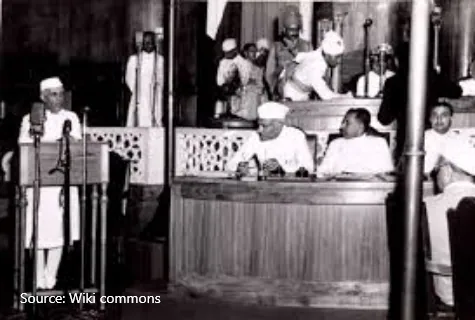Here are 5 reasons why you should archive your past

To preserve history and legacy
To maintain a record of the organisation’s evolution, achievements, and milestones. It is to celebrate people, the visionaries, the risk takers and the relentless pursuit of excellence that propels the company forward. It helps in creating a legacy that future generations can learn from and be motivated by. It also helps preserve the brand’s essence.

To enhance organisation’s public relations
The archive can be a powerful tool for enhancing the organisation’s public image. By showcasing historical achievements, milestones, and the evolution of products and services, the organisation can build a narrative of growth, resilience, and success. This narrative can be shared through various media channels, strengthening the brand's reputation and credibility and foster a sense of trust and loyalty among customers.

To ensure legal compliance
Maintaining an archive ensures that the organisation complies with legal requirements regarding record-keeping. Various laws and regulations mandate the retention of specific documents for defined periods. An organised archive helps in meeting these obligations efficiently, reducing the risk of legal penalties and ensuring transparency. Additionally, in the event of audits, litigation, or investigations, having a well-maintained archive facilitates swift and accurate retrieval of necessary records, safeguarding the organisation’s legal interests.

To create a resource for research
The archive serves as an invaluable resource for both internal and external researchers. Internally, employees can gain insights into the organisation's past projects, strategies, and outcomes, helping them make informed decisions and avoid past mistakes. Externally, scholars, historians, and industry analysts can study the organisation's impact and development over time, contributing to academic research and industry knowledge.

To build and strengthen company culture
Archives play a crucial role in shaping and strengthening the organisational culture. By documenting and sharing the company’s history, values, and traditions, employees gain a deeper understanding of the organisation's identity and mission. This shared knowledge fosters a sense of belonging and pride among employees, encouraging them to uphold and carry forward the organisational values.
What you should preserve
- Historical documents such as incorporation certificates, mission statements, licenses, permits, advertisements and press releases.
- Major milestones and leadership profiles
- Artifacts & memorabilia
- Oral history & anecdotes
- Employee voices
- Pictures, videos, handwritten notes or letters
Where to begin
Setting up a corporate archive is no easy feat. A physical archive requires specific infrastructure to preserve documents and memorabilia, as well as an archivist to manage and organise it. However, you can start by curating content. The first step is always to identify the goal behind setting up the archive.
To curate content, set up a central team that will help you gather information from various sources. The team can then digitize the content and identify channels through which the content can be distributed and popularised to achieve the goal.
Write to us at: subtext@ticworks.com





